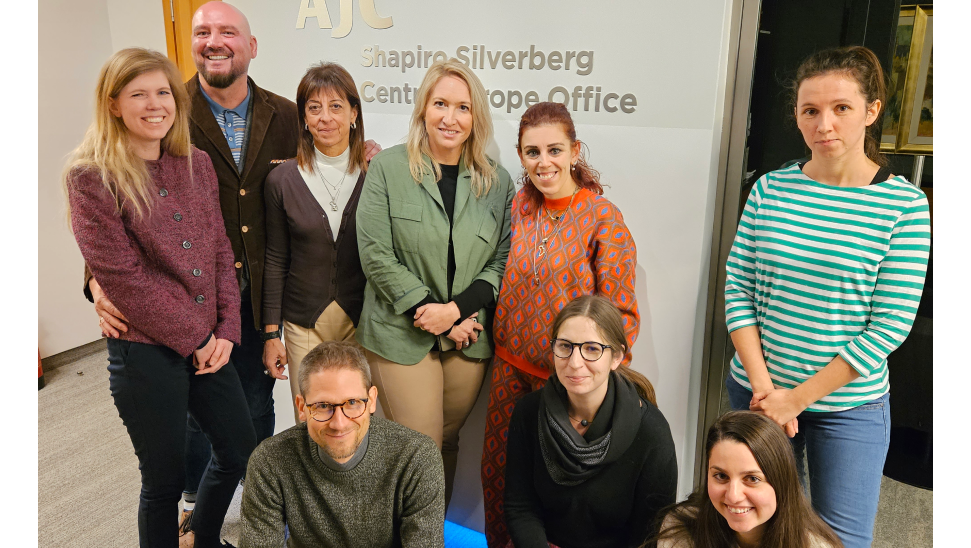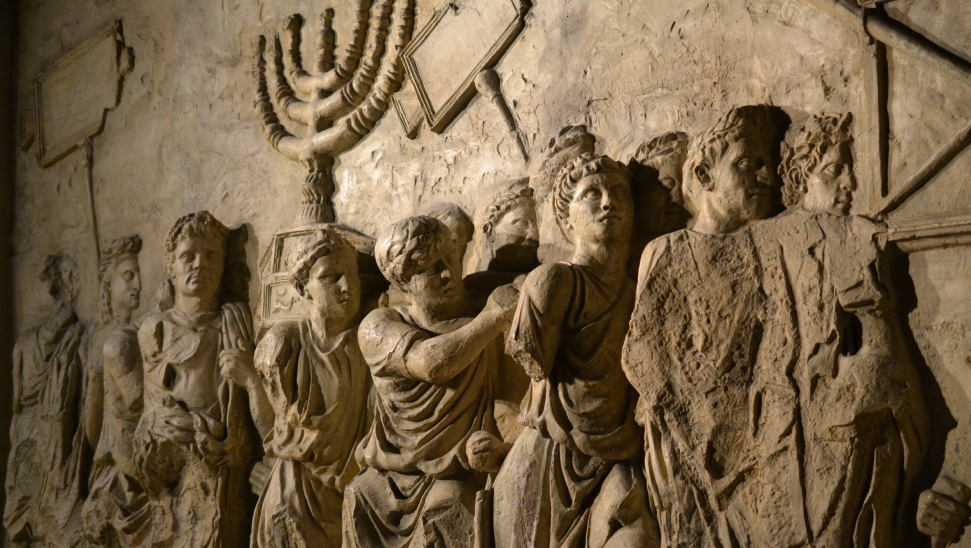
BOND Youth education and exchange: Building bridges & overcoming borders in Warsaw
The BOND Consortium has organized a Youth Exchange event, which took place from the 17th – 20th of November 2023 in the Golden Tulip Hotel in Warsaw. Young students in their teenage years from Romania, Italy and Poland participated in this event, to gather a basic understanding of the history, culture and inheritance of Jewish people in Europe, to reveal and address antisemitic stereotypes as well as to foster a trans-national alliance of young changemakers across Europe. The event was accompanied by excursions to the Warsaw Ghetto and the POLIN Museum on the history of Polish Jews.
The Zachor Foundation, in collaboration with the USC Shoah Foundation, was proudly announcing a unique educational opportunity in preparation for the youth exchange event in Warsaw. Before their visit to Poland, the students were engaging in three days of pre-trip activities using two modules for the IWitness educational platform, which features testimonies from survivors and witnesses of genocide. The pre-trip activities also prepared the students to interact with their peers from different countries and backgrounds and to reflect on their own role in preventing intolerance and discrimination.
Students from three Italy, Romania & Poland meeting in Warsaw for interreligious & intercultural exchange
The youth exchange event was organized by the BOND consortium, consisting of ASOCIATIA POLYLOGOS, SYNYO GmbH, POLITICAL CAPITAL, LE ROSE DI ATACAMA ASSOCIAZIONE – IMPRESA SOCIALE, FUNDACJA AMERICAN JEWISH COMMITTEE – CENTRAL EUROPE and ZACHOR FOUNDATION FOR SOCIAL REMEMBRANCE and took place from 17th – 20th of November in Warsaw, Poland. The Golden Tulip Hotel proofed to be a great venue for young students from Italy, Poland and Romania and accommodated all students as well as their teachers and other accompanying persons. The participants arrived on Friday evening at the venue to prepare for two intense days of workshops and excursions ahead. A social dinner at the hotel gave opportunity to familiarize with the other participants.
Saturday: Learning & Remembering – Students exploring history of the Holocaust in Warsaw
Saturday was an intense day full of seminars and excursions. The main goal of this first full-day was to create a deeper understanding of the Holocaust, including its historical context, its consequences as well as its significance for Jewish history and European society. The morning seminars were reflecting on the issue of antisemitism in each of the participating countries. Another session dealt with propaganda as a tool of discrimination and its mechanisms and consequences.
The afternoon field trip through the Warsaw Ghetto was fostering all the learnings and was accompanied by witness testimonials via the IWitness platform. As the largest and most notorious of the Nazi ghettos established during World War II, it confined about 460,000 Jews in a small area of the city. The living conditions were extremely harsh, with starvation, disease, and violence taking a heavy toll on the inhabitants.
The Nazis deported most of the ghetto residents to the Treblinka extermination camp in 1942, killing about 265,000 people. The remaining Jews resisted the final liquidation of the ghetto in April 1943, staging a heroic uprising that lasted for a month before being crushed by the German forces.
After visiting the sites of historical and cultural significance in Warsaw, the students returned to the seminar hotel, where they had a lively and productive discussion. They shared their impressions, feelings, and insights from the day, and exchanged their perspectives on the issues of discrimination and antisemitism. They also brainstormed ideas on how to combat these forms of hatred and intolerance in their own communities and beyond. The discussion was facilitated by the educators from the Taube Center for Jewish Life and Learning.
Sunday: Visit of POLIN museum & practical ways to oppose discrimination
This day started with a field visit to the POLIN museum, the first and only museum dedicated to the memory of the civilization created by Polish Jews over a millennium. The students received an extended guided tour through the whole museum which spans over 1000 years of history of the Polish Jews. As a modern institution of culture, POLIN focuses strongly on facing stereotypes and opposing xenophobia.
The seminar blocks on this day focused strongly on the practical aspect of how to oppose discrimination. Krzysztof Niwiński gave examples of minorities, who are being discriminated against, e.g. the Sinti & Roma. He explained the causes and consequences of antigypsyism, which is defined as a specific form of racism against this ethnic group. Students were encouraged, to think about their prejudices and stereotypes and to develop strategies to advocate for tolerance, diversity and human rights.
Young Europeans Learning from the Past & Shaping the Future
The youth exchange event left a long-lasting impact and helped young students from Romania, Italy and Poland to learn more about Jewish history as well as the culture and heritage of Jewish people. It helped to uncover and address antisemitic stereotypes and promote a transnational alliance of young changemakers in Europe. The students took part in various seminars and workshops that dealt with the topics of the Holocaust, anti-Semitism, discrimination and human rights. They also discussed their own experiences and ideas on how to combat intolerance and hatred in their communities and beyond.



Leave a Reply
You must be logged in to post a comment.